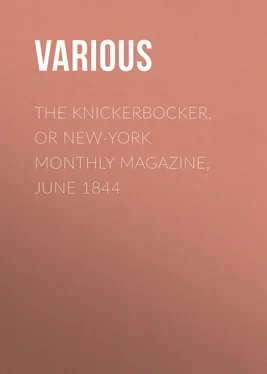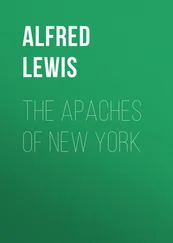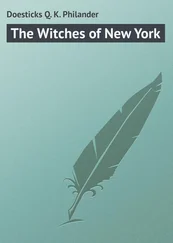Various - The Knickerbocker, or New-York Monthly Magazine, June 1844
Здесь есть возможность читать онлайн «Various - The Knickerbocker, or New-York Monthly Magazine, June 1844» — ознакомительный отрывок электронной книги совершенно бесплатно, а после прочтения отрывка купить полную версию. В некоторых случаях можно слушать аудио, скачать через торрент в формате fb2 и присутствует краткое содержание. Жанр: foreign_antique, periodic, foreign_edu, на английском языке. Описание произведения, (предисловие) а так же отзывы посетителей доступны на портале библиотеки ЛибКат.
- Название:The Knickerbocker, or New-York Monthly Magazine, June 1844
- Автор:
- Жанр:
- Год:неизвестен
- ISBN:нет данных
- Рейтинг книги:5 / 5. Голосов: 1
-
Избранное:Добавить в избранное
- Отзывы:
-
Ваша оценка:
- 100
- 1
- 2
- 3
- 4
- 5
The Knickerbocker, or New-York Monthly Magazine, June 1844: краткое содержание, описание и аннотация
Предлагаем к чтению аннотацию, описание, краткое содержание или предисловие (зависит от того, что написал сам автор книги «The Knickerbocker, or New-York Monthly Magazine, June 1844»). Если вы не нашли необходимую информацию о книге — напишите в комментариях, мы постараемся отыскать её.
The Knickerbocker, or New-York Monthly Magazine, June 1844 — читать онлайн ознакомительный отрывок
Ниже представлен текст книги, разбитый по страницам. Система сохранения места последней прочитанной страницы, позволяет с удобством читать онлайн бесплатно книгу «The Knickerbocker, or New-York Monthly Magazine, June 1844», без необходимости каждый раз заново искать на чём Вы остановились. Поставьте закладку, и сможете в любой момент перейти на страницу, на которой закончили чтение.
Интервал:
Закладка:
The number of prisoners on my arrival at the dépôt I understood to amount to about three thousand; notwithstanding the deaths had gradually increased, the number was kept good by detachments sent in from time to time, many of them from English ships of war, who had been impressed into the service; and although they had frequently asked for a discharge, they could not get it until the European war had ended, and there was but little farther use for them. But they obtained their dismissal, and with it the pay and prize-money due to them at the time.
Such occasions afforded a kind of jubilee, as the money they brought was soon put in circulation through the prisons, from whence it speedily evaporated, being spent in provisions, vegetables, and fruits, brought there by the country-people for sale, and for which an enormous price was paid. Many of the men thus delivered up, had spent several years of the prime of life in fighting the battles of a foreign nation, and were then dismissed with the most brutal treatment. As an instance: a man by the name of Slater, a tall, robust man, just such an one as they like to get hold of, in the service where he had been several years, had made frequent but unavailing applications for a discharge. At length when the war broke out, he made more urgent solicitations for a release. The answer was, ‘Yes, you shall have it; but we will first give you something to remember us by.’ And tying him up, they gave him three dozen lashes, and sent him to Dartmoor. Such was the reward of his services!
THE SONG OF DEATH
Silent and swift as the flight of Time,
I’ve come from a far and shadowy clime;
With brow serene and a cloudless eye,
Like the star that shines in the midnight sky;
I check the sigh, and I dry the tear;
Mortals! why turn from my path in fear?
The fair flower smiled on my tireless way,
I paused to kiss it in summer’s day,
That when the storm in its strength swept by
It might not be torn from its covert nigh;
I bear its hues on my shining wing,
Its fragrance and light around me cling.
I passed the brow that had learned to wear
The crown of sorrow—the silver hair;
Weary and faint with the woes of life,
The tempest-breath and fever-strife,
The old man welcomed the gentle friend
Who bade the storm and the conflict end.
I looked where the fountains of gladness start,
On the love of the pure and trusting heart;
On the cheek like summer roses fair,
And the changeful light of the waving hair;
Earth had no cloud for her joyous eye,
But I saw the shade in the future’s sky.
I saw the depths of her spirit wrung,
The music fled, and the harp unstrung;
The love intense she had treasured there,
Like fragrance shed on the desert air:
I bore her to deathless love away;
Oh! why do ye mourn for the young to-day?
I paused by the couch where the poet lay,
Mid fancies bright on their sparing way;
The tide of song in his heaving breast
Flowed strong and free in its deep unrest;
His soul was thirsting for things divine—
I led him far to the sacred shrine.
The sage looked forth on the starry sky,
With aspiring thoughts and visions high,
He sought a gift and a lore sublime
To raise the veil from the shores of Time,
To pierce the clouds o’er the soul that lie;
I bade him soar with a cherub’s eye.
And now, neath my folded wing I bear
A spotless soul like the lily fair;
The babe on its mother’s bosom slept;
Ere I bore it far, I paused and wept;
’Twas an angel strayed from its fairer home:
Peace to the mourner!—I come! I come!
MARY MAY: THE NEWFOUNDLAND INDIAN
The tribe of aborigines to which Mary May, the heroine of our little sketch, belonged, has been named by the Newfoundlanders, ‘Red Indians;’ for what reason, I could never learn. This tribe, or probably the miserable remnant of it, since the English have settled the island has been regarded as altogether remarkable and undefinable. They have never, in a single instance, been induced to visit the white settler since British subjects have resided there. Little is known of their numbers, habits, or general spirit, although the most sedulous exertions have been made to bring about an amicable understanding and a reciprocal intercourse. They have chosen to remain isolated and insolated; keeping their history, their wisdom, and their deeds to themselves. They will hold no communion with others of their own race. There are the Esquimaux, very near their northern boundary; a people disposed to extend the rites of hospitality in peace, and a trading tribe; but these have no more knowledge of the ‘Red Indian’ than the white man; and they remain wrapt up in a historical mantle as dark as the shades of their own impenetrable complexion.
Much, of a marvellous character, has been said about the Red Indians. The fishermen of the island, as a mass, believe that these poor creatures are semi-human. They will tell you of their having been seen one moment cooking their venison, and composedly regaling themselves, and the next, upon learning the contiguity of the white man, they would vanish from sight, and not a trace could be found of their departure; that they descend far under ground in winter, and lead a kind of fairy life; that they have power to change themselves into birds and fishes, and to sustain life for hours together under water. But all this is of course unnatural and absurd. The Indians of Newfoundland are flesh and blood, and partake, in common with other races of rational beings, of properties holding them within ‘delegated limits of power.’ And in my opinion, they are as much entitled to a character of consistency as the generality of tribes on our continent. The secret of their shyness, and their unsocial and vindictive disposition, may better be accounted for, from the probable fact that they were inhumanly treated by the early discoverers of the island, the Portuguese and Spaniards. These monsters without doubt butchered and made havock of these poor natives as they did the South American Indians, and indeed wherever their lawless adventures led them, in this new world.
Various governors have been appointed to the Newfoundland station since Great-Britain has possessed the island, and all have used more than ordinary means to reach the Red Indians, and reconcile them to the pale-faces, who have taken possession of the bays and harbors of their bold and rugged coast. The last, of any magnitude, that was made, was during the summer of 1830, and immediately preceding the administration of Sir Thomas Cochran. It consisted of a regular exploring expedition, numbering about fifty persons, a part of whom were regular soldiers, and a part volunteer citizens, which left St. John’s, the capital of the island, with instructions to explore the interior, and traverse every portion of it in quest of the Indians, and to bring some back with them; but to use no cruelty, unless absolutely necessary. After traversing the internal wilds for some ten days, the expedition discovered smoke in the distance, and in a few hours came upon a party of Indians in their wigwams. The red men were greatly surprised, and appeared much alarmed. But upon being presented with some showy ornaments, accompanied by smiles, and other friendly indications, their fears somewhat subsided, and two of them became apparently willing to accompany the expedition into St. John’s, on learning by signs that two of the white men would remain as guarantees of their good treatment and return. The white men left were supplied with a large quantity of ornaments and trinkets to distribute among other Indians whom they might find during the absence of their party, a period which was not to be prolonged beyond a month. The good-bye was given, and the expedition started on their return home. It had not travelled many hours before an uncontrollable disposition seized them to go back again to the spot of separation to see if all was well, for some declared that they had a presentiment that there had already been foul play. Back they went, and when they reached the spot where good wishes had just been interchanged, the first spectacle which met their eyes was the mutilated dead bodies of their faithful hostages! Without any consultation, or a moment’s delay, the commander of the expedition ordered the two Indians in their keeping to be shot, and their bodies left exposed, as they had found those of their comrades. This order was promptly executed.
Читать дальшеИнтервал:
Закладка:
Похожие книги на «The Knickerbocker, or New-York Monthly Magazine, June 1844»
Представляем Вашему вниманию похожие книги на «The Knickerbocker, or New-York Monthly Magazine, June 1844» списком для выбора. Мы отобрали схожую по названию и смыслу литературу в надежде предоставить читателям больше вариантов отыскать новые, интересные, ещё непрочитанные произведения.
Обсуждение, отзывы о книге «The Knickerbocker, or New-York Monthly Magazine, June 1844» и просто собственные мнения читателей. Оставьте ваши комментарии, напишите, что Вы думаете о произведении, его смысле или главных героях. Укажите что конкретно понравилось, а что нет, и почему Вы так считаете.












